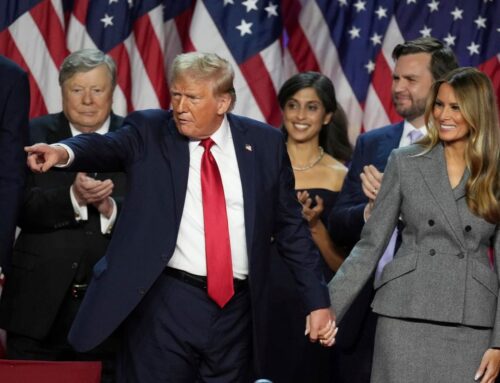Collision of politics, trade and AI mania threatens to derail U.S. renewable energy
November 18, 2024
The collision of politics, trade and AI mania is threatening to derail U.S. renewable energy.
Equity sentiment remains heavily levered to Wednesday’s highly anticipated earnings announcement by Nvidia. So far in 2024, Nvidia shares have doubled in price — no mean feat after tripling in 2023. The rise in the chipmaker’s stock value has accounted for more than $2 trillion of the $9 trillion increase for the S&P 500 so far this year.
AI mania has driven the eye popping surge at Nvidia
NVDA
. Not since the dot-com bubble during the late 1990s has there been such an investor frenzy for new technology. While investor enthusiasm is undeniable, not everyone agrees that the fulfillment of AI’s long-term promise is inevitable.
“Replacing low-wage jobs with tremendously costly technology is basically the polar opposite of the prior technology transitions I’ve witnessed in my thirty years of closely following the tech industry,” Jim Covello, head of equity research at Goldman Sachs, said in a research note published over the summer.
But one thing that bulls and bears alike agree on is that the corporate AI investment cycle will not end anytime soon. Even Covello, who argues that it will be hard for investors to earn a return on the more than $1 trillion expected to be spent on developing the tech, predicts the buildout to continue at a rapid pace.
One sector Covello urges investors to consider is utilities. Energy companies will need to increase electricity production dramatically in the coming years to meet increasing demand from AI facilities.
Until the U.S. presidential election, it was assumed that this sudden surge in power consumption would be a boon for the renewable and clean energy tech sectors. AI vanguards such as Meta and Google committed billions to developing nuclear power, green architecture and water efficient cooling tech over the past two years. The rapid introduction of AI into the economy tied investor sentiment with energy transition.
Following President-elect Donald Trump’s ascendancy, there are growing signals that investor enthusiasm for clean power may be cooling. The First Trust NASDAQ Clean Edge Green Energy Index Fund
QCLN
has declined by 6% since the election while the Energy Select Sector SPDR Fund
XLE
has risen by more than 5.5%.
Last week, Trump nominated Chris Wright, CEO of the Colorado-based oil company Liberty Energy, to be the next energy secretary. Wright’s views on clean and renewable energy are unequivocal. Write said in a video posted last year to LinkedIn that: “There is no climate crisis, and we’re not in the midst of an energy transition, either.”
Trump tapped North Dakota Governor Doug Burgum to serve as secretary of the Interior Department and to chair the new National Energy Council. Like Wright and Trump, Burgum has publicly denied climate change and postured AI development as an arms race with China that will require increased fossil fuel production.
According to some market analysts, that arms race could spill over into international commerce. Shneur Gershuni and Ronald Wu, heads of Sustainability Research for the Americas and China for UBS, respectively, discussed last week in a webinar the impact of diminished policy support for renewables in Washington on international renewable energy. In their view, global markets may be facing a “carbon trade war” where economic protectionism and climate policy coincide.
Gershuni and Wu argue the Republican sweep of the White House and both chambers of Congress make it unlikely that the U.S. will adopt any ESG reporting for firms and will withdraw from international environmental bodies. Such moves would open the door for China to become the global policy leader.
Search
RECENT PRESS RELEASES
Related Post




